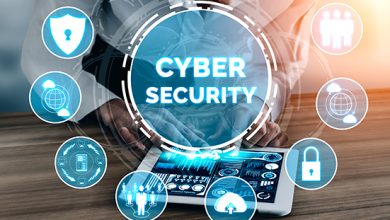Guide To Tackling the Ethical Hacker Exam

Before getting into the ethical hacker certification exam, let us understand what ethical hacking and ethical hacker are.
Ethical hacking is attempting to gain unauthorized access to a computer, data, or application with authorization. The proactive work they do helps improve a company’s security posture. With the prior consent of the owner or organization of IT assets, the mission of ethical hacking is the opposite of malicious hacking.
Doing this helps identify security vulnerabilities that can then be fixed before a malicious attacker has a chance to exploit them.
Concept Of Ethical Hacking
- Obtaining prior permissions for access and carrying out the security assessments is necessary.
- The scope of the entire ethical hacking process is to be defined and well understood.
- If any vulnerabilities are found during the process, the ethical hacker should report to the organization.
- Due to data sensitivity, the ethical hacker is to sign a non-disclosure agreement with the organization that is being assessed.
Ethical Hacker Certification
To become an ethical hacker, the individual must get an ethical hacker certification.
This article will explore the Ethical hacking v9 Certification provided by EC Council. The International Council of E-Commerce Consultants (EC Council) is one of the largest organizations that offer cybersecurity certification.
This Ethical hacking v9 Certification provides an individual with the knowledge of advanced principles and concepts of ethical hacking. It includes exploiting writing, corporate espionage, advanced network packet assessments, Windows administration using PowerShell, SQL Hacking, Oracle database, etc. In a nutshell, this course and certification provide in-depth knowledge of critical security systems.
Details Of the Ethical Hacker Certification Exam
There are two steps to get certified as an Ethical Hacker
- The first is to attend a 40-hour training online of the course
- The second is the main exam
The exam will aim to test the individual about their knowledge across eighteen domains or subjects, which are:
- Background into Ethical Hacking
- Session Hijacking
- Sniffing
- Social Engineering
- Malware Threats
- SQL Injection
- Footprinting and Reconnaissance
- Enumeration
- System Hacking
- Scanning Networks
- Denial of Service and Distributed Denial of the same
- Cloud Computing
- Cryptography
- Hacking mobile platforms
- Hacking web servers
- Evading IDS Firewalls, Honeypots
- Hacking wireless networks
- Hacking web applications
The exam pattern consists of 125 Multiple Choice Questions. The cut-off to obtain the certificate is 70%. The exam can be scheduled and taken in two ways:
- Through the ECC exam center
- Through Pearson VUE
Scoring Areas in Ethical Hacker Certification Exam
The above-mentioned domains are segregated into seven content categories based on which the exam is set. A snapshot of the same is provided for easy understanding
| S.No | Content | Weightage | Brief |
| 1 | Background | 4% | This section aims at testing the person’s knowledge of the basics. It has five questions covering kinds of software, hardware, systems vulnerable to getting hacked |
| 2 | Analysis/Assessment | 13% | This part covers data analysis, system analysis, technical assessment, risk assessment through 16 questions |
| 3 | Security | 25% | This section focuses on the security areas. It has 31 questions and is a major portion of this examination. It covers and tests the individuals on Firewalls, physical security, Network Security, Cryptography, Biometrics, Trusted Networks, and such. |
| 4 | Tools, Systems, Programs | 32% | This is the most crucial section of the exam. About 40 questions cover the individual’s expertise on tools, systems, and programs used by any hacker. Prior knowledge of C++ or Java, PHP, and different operating systems is helpful. |
| 5 | Procedures | 20% | 15 questions are present in this section and cover the procedures and methodologies. |
| 6 | Regulations and Policy | 4% | This section has five questions and tests the individual’s knowledge of policies and regulations. |
| 7 | Ethics | 2% | This is the final section and has three questions. This covers the code of content and other ethics-related theories. |
Ethical hacking is the most sought-after profile, given the massive surge in the use of data. An ethical hacker certification must add value to an individual’s resume. This certification can be a launchpad for a future career in IT security. Proper preparation is a must if you want to succeed in a cyber security certification examination. Make sure to understand the courses well.




